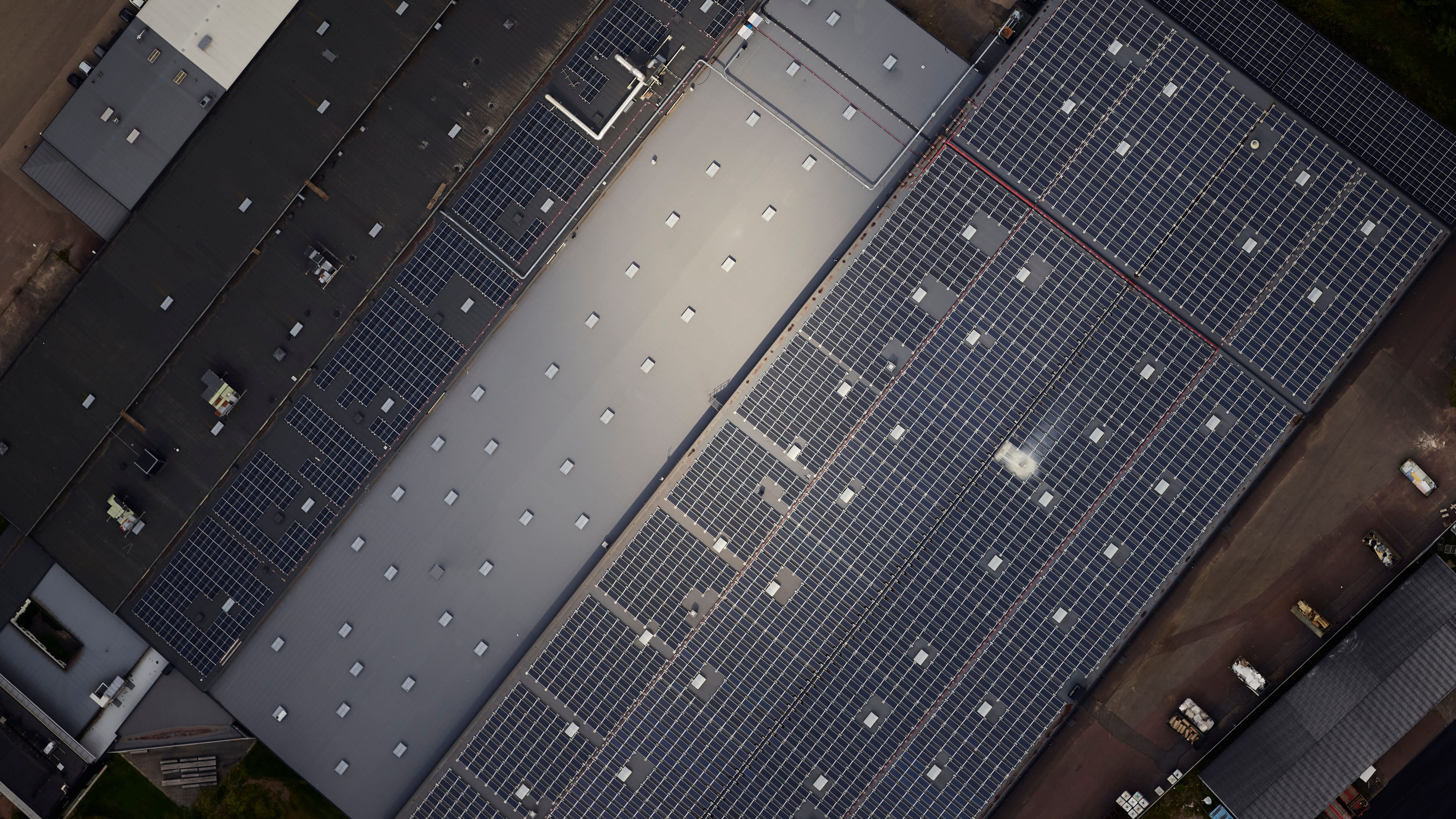Climate Impact
Net Zero by 2040
Our ambition is to achieve net zero climate impact across our entire value chain by 2040. This goal is set higher than the Paris Agreement, which aims for global net zero by 2050. As a successful company, we feel obliged to be among the first to reach this target. However, we are dependent on others and remain humble about our ability to meet the target 10 years ahead of schedule.
RENEWABLE ENERGY
As of 2022, we are net producers of renewable energy, thanks to geothermal heating and 4400 solar panels installed on our factory roof, producing around 1600 MWh annually. Combined with energy-efficient processes, this results in only 2–3% of the product’s climate footprint coming from manufacturing.


Since 2022 LINTEX has been a net producer of renewable energy.
NOT YET CLIMATE NEUTRAL
To better understand how to reduce our climate impact, we have conducted extensive life cycle analyses for the majority of our products. The results, based on specific data, are third-party verified and published in Environmental Product Declarations (EPDs). We learned that 80% of the climate footprint and 75–95% of the total environmental footprint come from the production of raw materials and components, mainly metals and textiles. We have CO2 data for more than 6,000 articles, which will soon be published in our online product configurators.

*Based on data from Life Cycle Analysis (LCA), published in 3rd party verified EPDs, available at environdec.com
RESULTS SO FAR AND THE WAY FORWARD
It is very clear that we need to focus on the materials we use. Our climate strategy is to use materials more efficiently, switch to low-carbon materials, and take back products for remanufacturing. We are constantly looking for materials with lower climate impact and we encourage our suppliers to shift to renewable energy and increase the use of recycled materials. Some suppliers claim they will be able to deliver net zero materials to us by 2030, while others need more time. Bringing our supply chain to net-zero standards is the number one challenge we face in reaching net-zero, and it is the sole reason we recently changed our target year from 2030 to 2040. Between 2023 and 2024 alone, we reduced our climate impact by 30%, bringing our total reduction to 40% since 2019.


The climate impact is calculated according to the Greenhouse Gas (GHG) Protocol. Scope 3 categories 7 and 15 are not included.
Text: Sara Gripstrand, Sustainability Manager.
Photos: Brendan Austin

